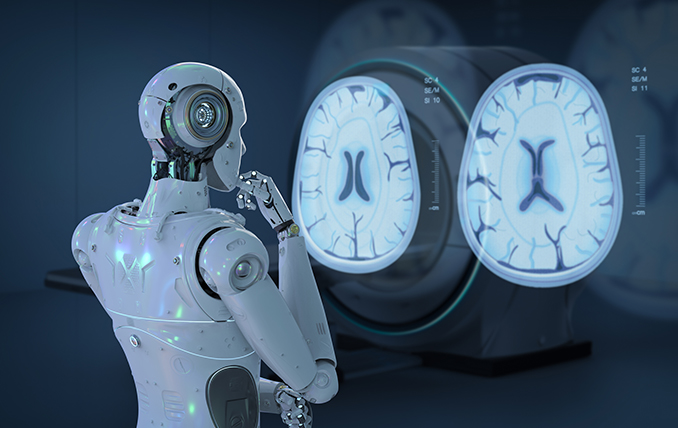
AI Revolutionizes Medical Diagnostics with Precision and SpeedAI Revolutionizes Medical Diagnostics with Precision and Speed Advancements in artificial intelligence (AI) are revolutionizing the medical field, particularly in the realm of diagnostics. AI algorithms are rapidly transforming the way diseases are detected, analyzed, and treated, bringing unprecedented precision and speed to the healthcare landscape. Precision Diagnosis AI-powered diagnostic tools utilize advanced machine learning techniques to analyze vast amounts of medical data, including images, laboratory results, and patient records. These algorithms can identify patterns and correlations that are often imperceptible to the human eye. By leveraging these insights, AI systems can provide highly accurate diagnoses, often surpassing the capabilities of experienced medical professionals. Timely Intervention Speed is of the essence in medical diagnostics. AI algorithms can rapidly process data and deliver diagnostic results in a matter of seconds or minutes. This accelerated timeframe enables clinicians to make timely and informed decisions about treatment, reducing delays and improving patient outcomes. Improved Detection Rates AI systems are particularly effective at detecting early-stage diseases and subtle abnormalities. By analyzing data in a comprehensive and objective manner, AI algorithms can identify potential health issues that may have been missed by traditional methods. This enhanced detection capability leads to earlier interventions and improved chances of successful recovery. Expanding Access AI-powered diagnostics have the potential to expand access to healthcare in underserved areas. Remote patient monitoring systems equipped with AI algorithms can provide real-time diagnostic feedback, reducing the need for travel and increasing convenience for patients. Personalized Treatment Plans By integrating AI with electronic health records, clinicians can create personalized treatment plans that are tailored to each patient’s unique characteristics. AI algorithms can predict disease progression, identify optimal therapies, and monitor patient response to treatment, optimizing outcomes and reducing the risk of adverse events. Challenges and Ethical Considerations While AI holds immense promise in medical diagnostics, it also presents challenges and ethical considerations that must be addressed. Data security, biases in AI algorithms, and the potential for misdiagnosis are among the concerns that need to be carefully managed. Collaboration between healthcare professionals, data scientists, and ethicists is crucial to ensure the responsible and ethical use of AI in medicine. Conclusion The AI revolution in medical diagnostics is rapidly transforming the healthcare industry. AI algorithms provide unprecedented precision, speed, and objectivity, leading to improved detection rates, timely interventions, and personalized treatment plans. As AI continues to evolve, we can expect even more groundbreaking innovations that will empower healthcare professionals and improve patient outcomes worldwide.
Posted inNews